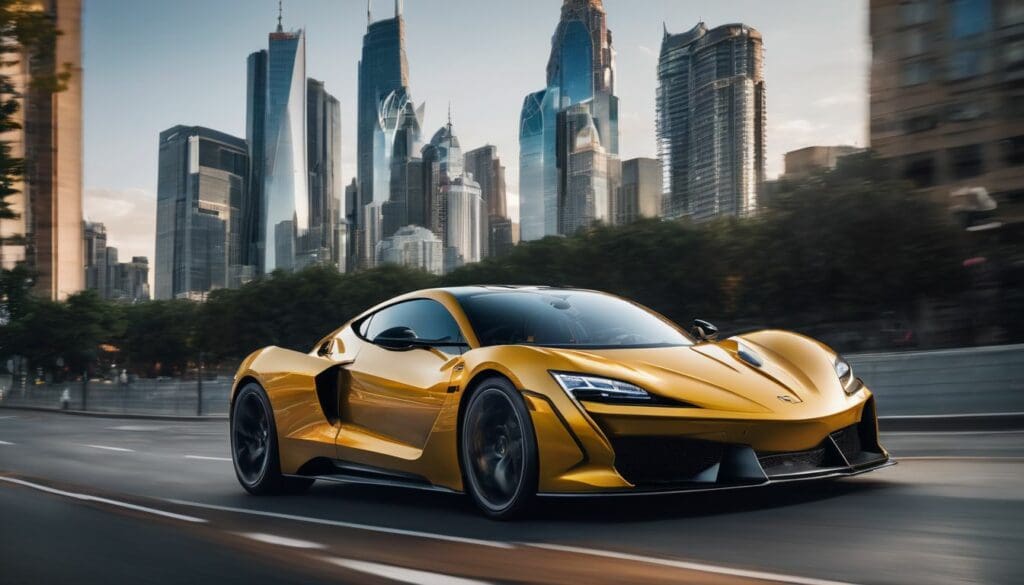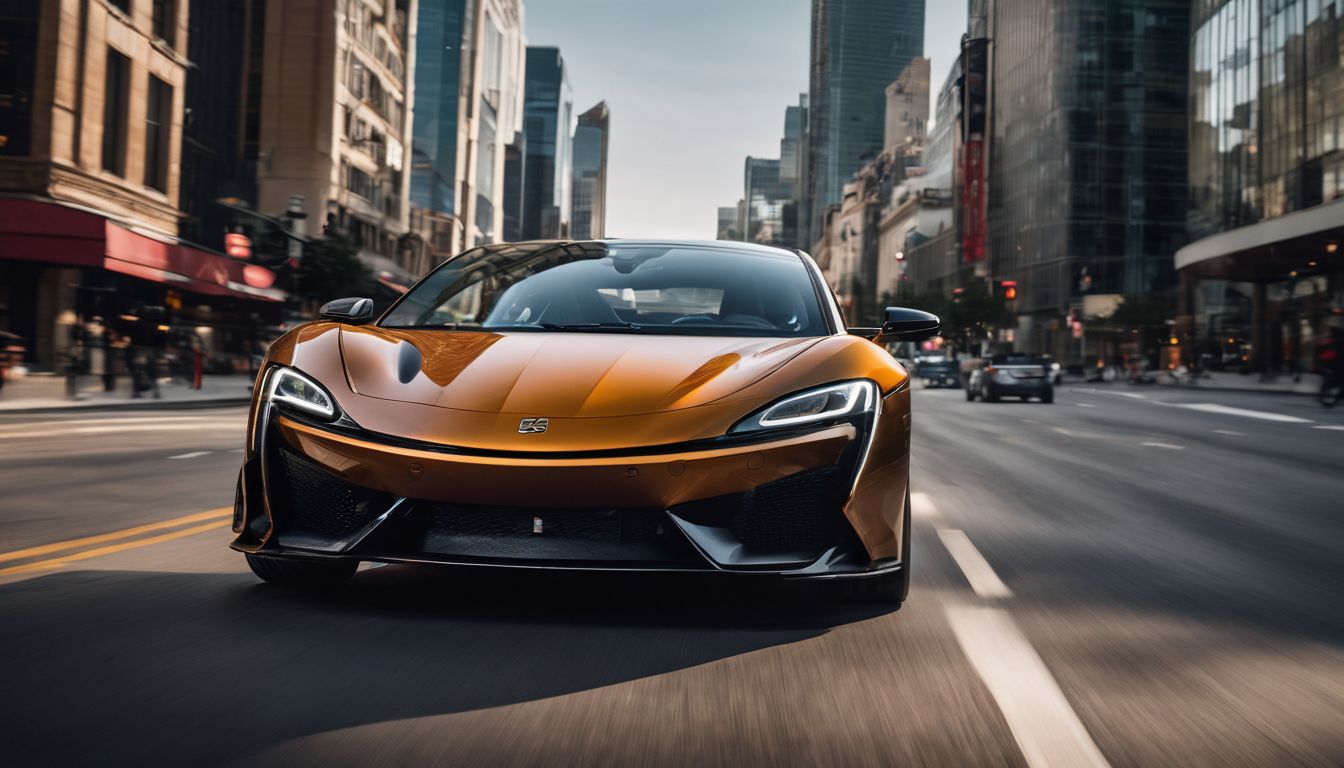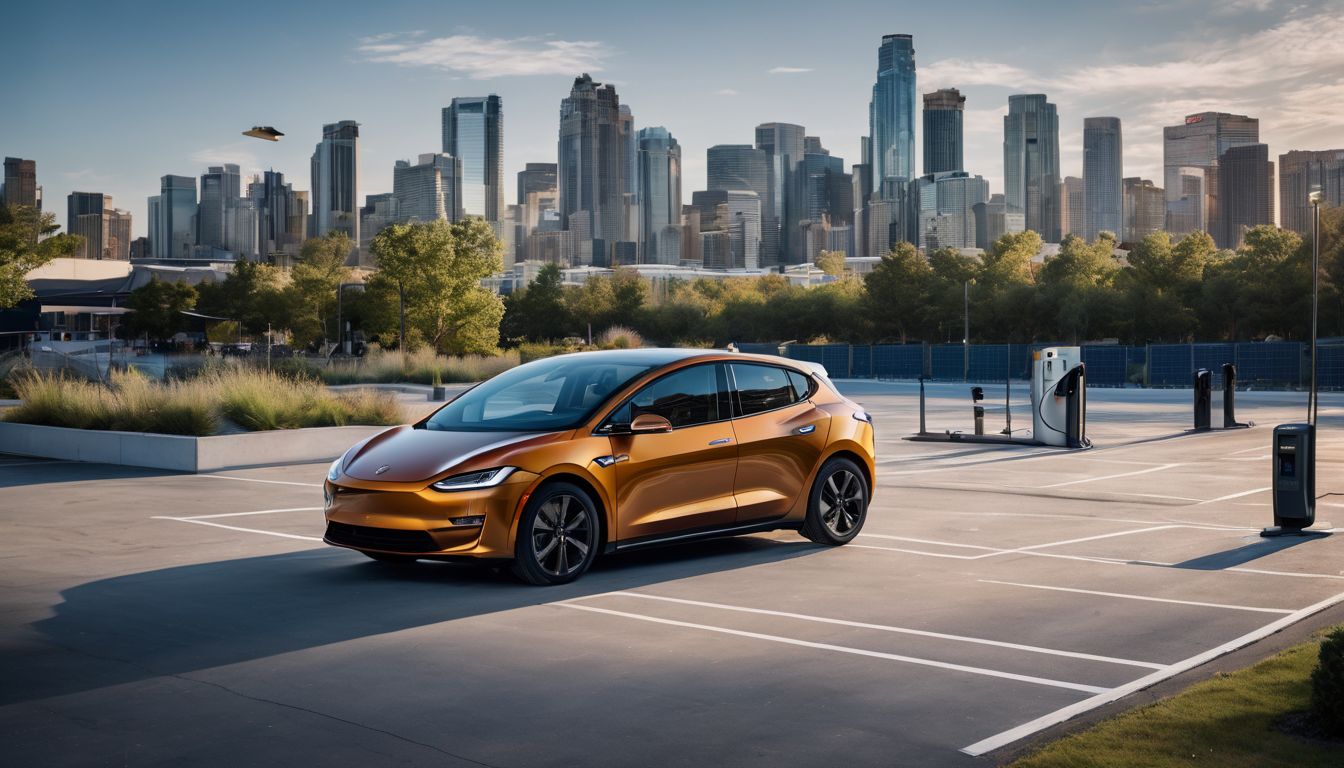Many of us harbour a thirst for the heart-racing excitement that sports cars offer, yet we’re equally conscious of our ecological footprint. Rest assured, you’re not alone in this quandary.
Through dedicated research and exploration into this innovative realm, we’ve unearthed that electric sports cars are revolutionising the landscape with their green credentials without scrimping on thrill.
Our article lifts the bonnet on these dashing vehicles, exploring their evolution, the hurdles surmounted in their creation, and pondering their future trajectory. Anticipation is mounting – do join us as we embark on this electrifying journey!
Key Takeaways
- Electric sports cars have a long history, with early prototypes dating back to the 19th century, and after facing periods of fluctuating popularity, they are now enjoying a resurgence due to technological advancements.
- Despite initial challenges such as limited driving range and high costs, improvements in battery technology and infrastructure have made electric sports cars more appealing to consumers seeking both performance and sustainability.
- These vehicles are breaking traditional perceptions by offering fast acceleration and exciting speeds while being environmentally friendly.
- Future prospects for electric sports cars include further enhancements in performance and design, increasing their presence in mainstream markets and potentially transforming motorsports into an eco-conscious arena.
- As technology evolves, these dynamic vehicles stand poised to play a pivotal role in reducing automotive emissions and leading the charge towards greener transportation options.
The History of Electric Cars
Electric cars have been around since the early 19th century, with various prototypes developed over the years. They saw a rise and fall in popularity due to limitations in technology and infrastructure, but have made a modern resurgence as advancements continue to be made in electric vehicle technology.
Early prototypes
We often overlook the fact that electric vehicles have a storied past, rich with early prototypes that paved the way for today’s eco-friendly automobiles. Believe it or not, some of the initial experiments in electric vehicle technology date back to the 19th century! Innovators of that era tinkered with battery-powered cars, laying down fundamental concepts on which modern engineers build upon.
These pioneers set their sights on creating sustainable transportation alternatives. They crafted rudimentary versions of what we now recognise as hybrid and all-electric cars. Their contraptions ranged from electric carriages that silently glided through streets to electric-powered trams bustling in urban areas.
Their vision was clear: a world less reliant on petrol or diesel cars—a dream we continue to chase after more than a hundred years later.
Rise and fall in popularity
Electric cars have experienced an oscillating journey in terms of popularity, with early prototypes struggling to gain widespread acceptance. Their initial rise was hindered by limited technology and infrastructure, leading to a decline as conventional vehicles dominated the market.
However, recent developments in battery-powered cars have reignited interest and significantly increased their appeal.
During their initial emergence, electric cars faced skepticism due to limited driving range and sparse charging stations. These challenges affected consumer confidence and contributed to a decrease in popularity.
Consequently, traditional combustion engine vehicles maintained their dominant position within the automotive industry. Nonetheless, modern advancements in electric car technology have sparked a resurgence of interest among consumers looking for sustainable transportation options.
Modern resurgence
Electric cars have experienced a modern resurgence, with advancements in battery technology and infrastructure driving their increased popularity. This resurgence has been fueled by growing environmental awareness and the need for sustainable transportation options.
Manufacturers are investing heavily in electric car development, leading to improved performance, longer ranges, and more affordable models. The future of electric sports cars looks promising, with ongoing innovations expected to further enhance their appeal among environmentally conscious consumers.
The modern resurgence of electric sports cars is reshaping the automotive industry and paving the way for a cleaner and more sustainable future. With a focus on renewable energy vehicles and green technology, the market dynamics for electric cars continue to evolve, offering exciting opportunities for eco-friendly automobiles.
Challenges in Developing Electric Sports Cars
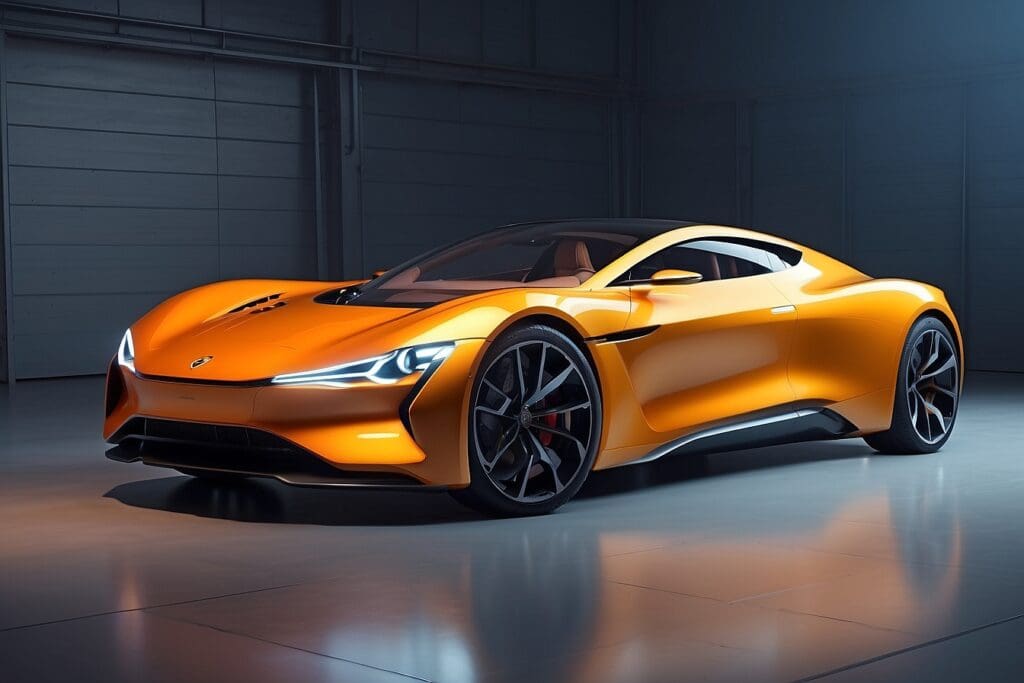
Developing electric sports cars presents unique challenges, including limited range and the need for a robust charging infrastructure. Additionally, the higher cost of manufacturing electric vehicles poses a hurdle in appealing to mainstream consumers.
Limited range and charging infrastructure
Electric sports cars face challenges due to limited range and charging infrastructure. This restricts the ability of electric vehicles to cover long distances without frequent recharging.
Implementing a comprehensive network of charging stations is essential for the widespread adoption of electric sports cars, providing drivers with convenient access to recharge their vehicles, addressing concerns about range anxiety.
Improving the infrastructure for electric vehicle charging is crucial, as it will encourage more environmentally conscious individuals to embrace clean energy vehicles and support sustainability efforts.
Higher cost
Electric sports cars are at the forefront of cutting-edge technology; however, they do come with a higher price tag compared to their traditional counterparts. The cost is primarily attributed to the advanced electric drivetrain, state-of-the-art battery technology, and specialised lightweight materials used in construction.
Nevertheless, advancements in electric vehicle development have led to reducing production costs, which is making these eco-friendly automobiles increasingly accessible and affordable for consumers looking to support conservation and environmental initiatives while enjoying high-performance vehicles.
In order to promote environmentally conscious driving among individuals interested in conservation efforts, it’s essential for manufacturers to focus on increasing the affordability of electric sports cars without compromising on performance or design.
Overcoming traditional perceptions
Electric sports cars are surpassing traditional perceptions of electric vehicles as slow and unexciting. With advancements in technology, electric sports cars can now deliver impressive acceleration and top speeds.
Moreover, the shift towards sustainability has reshaped the image of eco-friendly automobiles, with electric sports cars becoming a symbol of innovation and performance. These cars challenge the stereotype that electric vehicles lack power and excitement, contributing to a change in mindset among consumers interested in high-performance automobiles.
As environmentally conscious individuals supporting conservation efforts, it’s important to recognise how electric sports cars are breaking through traditional barriers. They offer an exhilarating driving experience while promoting environmental sustainability – making them an attractive option for those who value both performance and eco-friendliness.
The Future of Electric Sports Cars
The future of electric sports cars is looking promising, with increasing popularity and advancements in technology leading to better performance and design. Potential for electric sports cars in motorsports is also being explored, making it an exciting time for eco-conscious car enthusiasts.
Read on to discover what the future holds for electric sports cars!
Increasing popularity and advancements in technology
Electric sports cars are gaining popularity due to advancements in technology and increasing awareness of environmental issues. With the rise of electric vehicles, including sports car models, more drivers are embracing eco-friendly transportation.
Manufacturers are focusing on improving battery technology, resulting in longer driving ranges and faster charging times for electric sports cars. These advancements have made electric sports cars more appealing to environmentally conscious consumers, driving the growth of this niche market.
Moreover, there have been significant strides in enhancing the performance and design of electric sports cars. Cutting-edge engineering has led to impressive acceleration and top speeds in these vehicles, challenging traditional perceptions about their capabilities.
Promising developments in performance and design
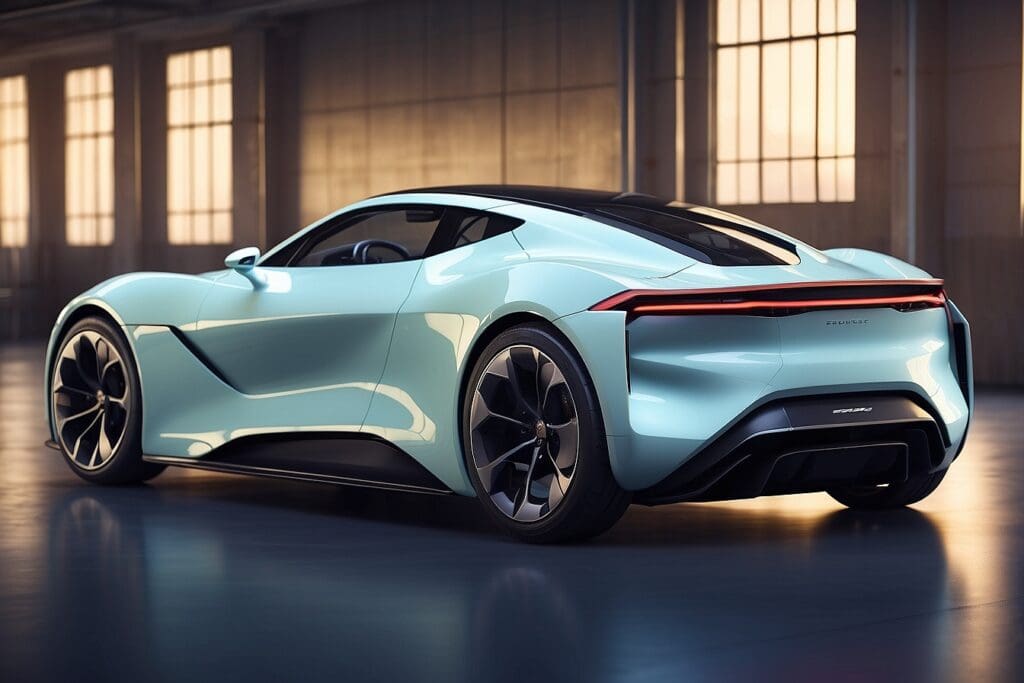
Automakers are making significant strides in enhancing the performance and design of electric sports cars. These advancements are seen in improved battery technology, resulting in longer range and faster charging times.
Moreover, innovative engineering has led to the development of lighter materials and aerodynamic designs, boosting efficiency and speed.
Design elements such as sleek exteriors and futuristic interiors are also becoming more prevalent, appealing to eco-conscious consumers who seek both style and sustainability in their vehicles.
Potential for electric sports cars in motorsports
Electric sports cars have the potential to revolutionise motorsports, offering thrilling races without harmful emissions. These eco-friendly vehicles can showcase cutting-edge technology and demonstrate the performance capabilities of electric powertrains in high-speed competitions.
With advancements in battery technology, these cars could pave the way for a new era of sustainable racing, attracting environmentally conscious individuals who seek exciting yet environmentally friendly forms of entertainment.
Furthermore, integrating electric sports cars into motorsports would help spur innovation in battery and charging technologies, driving progress towards more efficient and powerful electric vehicles.
Conclusion
In conclusion, electric sports cars are gaining traction in the automotive industry due to their eco-friendly nature and impressive performance. Manufacturers are overcoming challenges such as limited range and charging infrastructure to make these cars more accessible.
The future looks promising with advancements in technology leading to improved performance and innovative designs. We anticipate a significant shift towards electric sports cars, showcasing their potential impact on motorsports and the environment.
FAQs
1. What are electric sports cars?
Electric sports cars are fast and ecofriendly automobiles that use batteries to run instead of petrol or diesel.
2. How do electric sports cars impact the environment?
These cars reduce pollution, as they don’t emit any exhaust gases, making them a clean alternative for the environment.
3. Can electric sports cars be as powerful as traditional ones?
Yes! Electric sports cars can match or even surpass the performance of some hybrid and petrol-powered cars with their quick acceleration and high speeds.
4. Are there different types of electric vehicles besides sports cars?
Absolutely, apart from sporty models, you have battery-powered family sedans, autonomous vehicles on city streets and even electric-powered trams gliding along rails!

